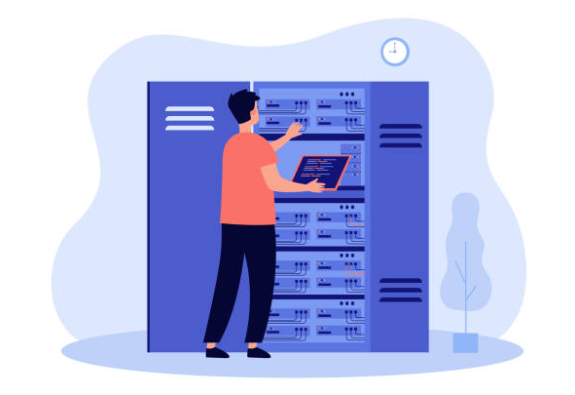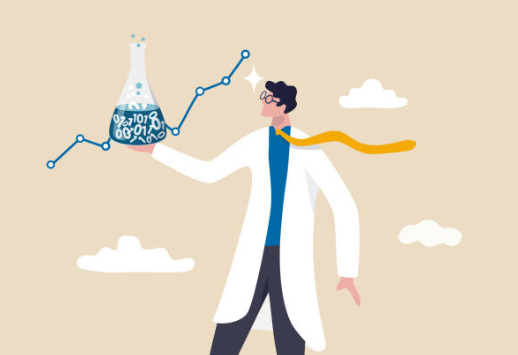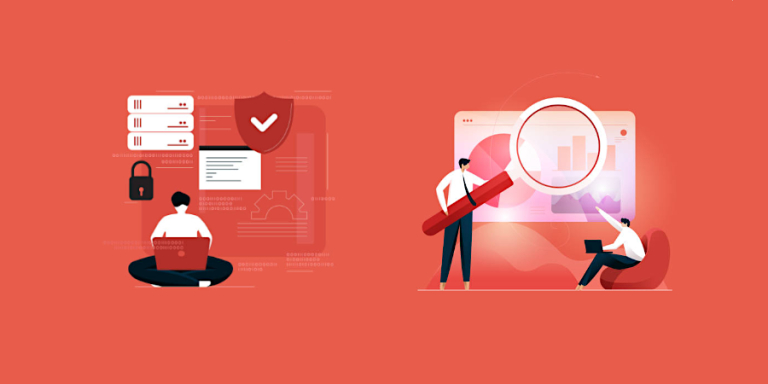In the era of Big Data, new professions are emerging. Among the most common: The data engineer and the data scientist. So what are the differences between the two? And the similarities? Discover the answers.
What are the missions and skills of a Data Engineer?
The data engineer is the creator of the data architecture. Indeed, he develops, tests, and implements the roadmap. Both at the level of the database, but also of the data flows (from collection to storage).
The missions
The first mission of the Data engineer is to design and develop a reliable big data architecture (at the database and process levels).
To do this, he must :
- Ensure that the architecture implemented meets the business objectives of his organization.
- Discover new data acquisition opportunities. By multiplying data sources, the decision-making process is more reliable.
- Improve data efficiency, reliability, and quality. It is confronted with raw data that is sometimes false, obsolete, or badly formatted. His role is then to track down all the dysfunctions.
- Develop processes for data modeling, data mining, and production.
The skills
In order to accomplish these missions, the data engineer must master numerous IT tools. This allows him to create a homogeneous environment, despite the presence of heterogeneous formats, objects, and sources.
It is precisely this work that facilitates data analysis by the Data Scientist.

What are the missions and skills of a Data Scientist?
The Data scientist is the data expert. He exploits and analyses them to help make decisions.
The missions
The mission of the data scientist is to explore data and make it talk. To do this, they have to study large volumes of data from internal or external sources to answer business problems.
He can directly use data to draw conclusions or perform predictive analysis and identify hidden patterns. In this sense, it is also important to distinguish between data scientists and data analysts. Indeed, data analytics only analyzes existing data.
The work of the data scientist does not stop there, since he must also communicate his findings to the management bodies and/or managers.
The objective is to transform data into real decision-making tools.
The skills
In order to make data speak, the Data Scientist must use several innovative technologies, such as machine learning, advanced analysis programs, data visualization, or statistics.
But beyond technical skills, he must above all have several soft skills.
On the one hand, he must have an increased knowledge of the company, the sector of activity, the specificities of the business, and the market in which he operates. This mastery of the environment is more than essential for the decision-making chain. And for good reason, the data he seeks to extract and analyse must be specific to the company in order to enable it to gain a competitive advantage (whether in terms of organization, new product development, sales, customer knowledge, etc.).
On the other hand, he must have communication skills, since he transmits his conclusions to managers. These conclusions must be communicated in a clear and precise way in order to facilitate understanding, and therefore, the taking of good decisions.

What do a data engineer and a data scientist have in common?
Data engineers and data scientists are above all data experts. As such, both professionals have a solid foundation in computer science. It is therefore possible that they have followed the same training (in an engineering school or a computer science school). That said, to excel in their field of expertise, we recommend that you take specialized training in data engineering or data science.
As far as salaries are concerned, data engineers and data scientists are paid approximately the same (between 120 K € and 135 K € per year). However, data scientists generally have a slightly higher salary. This is due to the fact that there are more job offers in this field.
In the same way, the future prospects are very positive for both professions. And, companies are more and more concerned about data management issues. And this is not about to stop.
Finally, Data Engineers and data scientists must master advanced technologies to do their job. However, they do not all use the same tools.
What is the difference between a data engineer and a data scientist?
If a data engineer and a data scientist are two similar professions, they have several differences. Here are the main ones:
- The tools: as seen previously,
Data Engineers and Data Scientists master the most innovative technologies. Some are similar (like Scala, Java, C#), but others are quite different. Indeed, the data scientist mainly uses programming languages (such as SPSS, Python, R, SAS), statistics, Excel, and Machine Learning to perform predictive analysis. On the other hand, the data engineer makes extensive use of tools such as SAP, Oracle, Cassandra, MySQL, Redis, Riak, neo4j, Hive, Sqoop, or PostgreSQL to model the data and build reliable architectures.
- The mission: this is the main difference between the two. The Data Engineer’s objective is to create a reliable data architecture, while the Data Scientist interprets this data.
- The vision: the Data Engineer is focused on the data. As such, they have much more developed technical skills. On the other hand, the data scientist often has a more refined business vision.
Despite these differences, it is important to remember that Data Engineer and Data Scientist are two perfectly complementary jobs.
Indeed, the data engineer must create an architecture with quality data. This then allows the Data Scientist to exploit the data. He could not do his job without the presence of the first.










